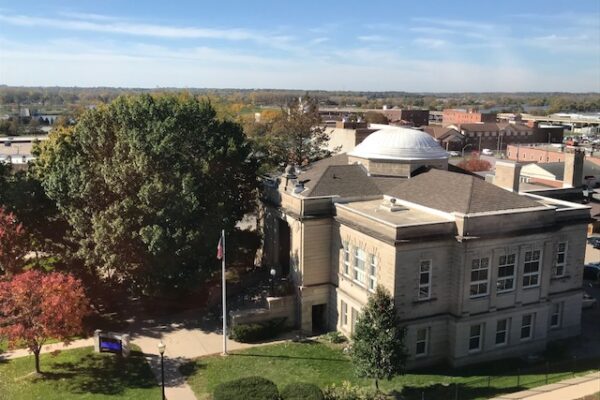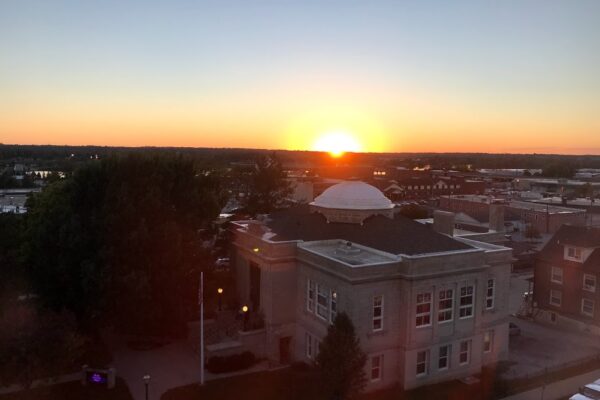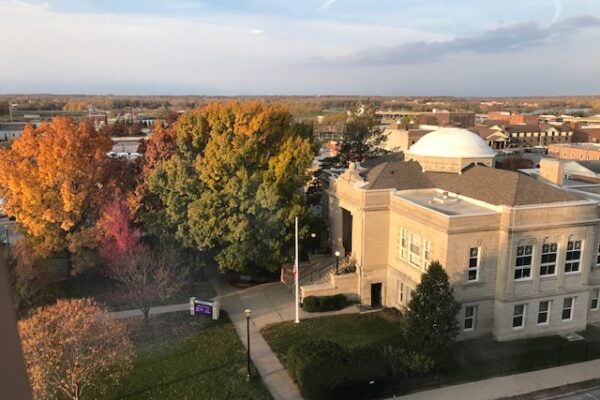The library movement began in Ottumwa in 1872 with the organization of the Ottumwa Library Association. Life memberships in the association could be purchased for $50, and the first librarian, Miss Emma Cooper, was paid $100/year. The library was open Wednesday and Saturday afternoons and Saturday evenings. By 1877, the Library Association was in financial bankruptcy and without a permanent home (the library had had six different locations up to this point).
Around the turn of the last century, R.H. Moore, newspaper publisher and community promoter, contacted philanthropist Andrew Carnegie about securing a grant for a new library building. Carnegie offered the city $50,000 if Ottumwa citizens would pass a tax to support the library. An election was held June 19, 1900, to vote on such a tax. Women voters supported the idea and carried the election by a good majority (had the election been left to the men, it would have been defeated). Three weeks later, the election was declared illegal…the judge’s ruling: women were not recognized by the Constitution as electors and therefore had no right to vote in the library election. A second vote was held on September 24, 1900. Despite circulars spread around the city that day “calculated to prejudice the people against
the library and influence their vote,” the measure passed 1572—1038.
The cornerstone for the new library was laid on September 21, 1901, and the library was dedicated on September 24, 1902. It was designed in the Beaux-Arts Classical style with a symmetrical façade, colossal Ionic columns, and a large central dome. The rotunda was adorned with an art glass oculus and allegorical figures of Poesie, Historia, Scientia, and Artes painted by Johannes Scheiwe.
On May 30, 1901, the Ottumwa Saturday Herald reported: ”Electric light, gas steam heat, the best of modern ventilating, and in fact the best of everything will be used in the furnishing and equipping of this building that for years to come will be Ottumwa’s pride…” Over one hundred years later, “Ottumwa’s pride” continues to serve the people of Ottumwa and southeast Iowa. (taken in part from The Carnegie Libraries of Iowa by John M. Witt)



